purpose
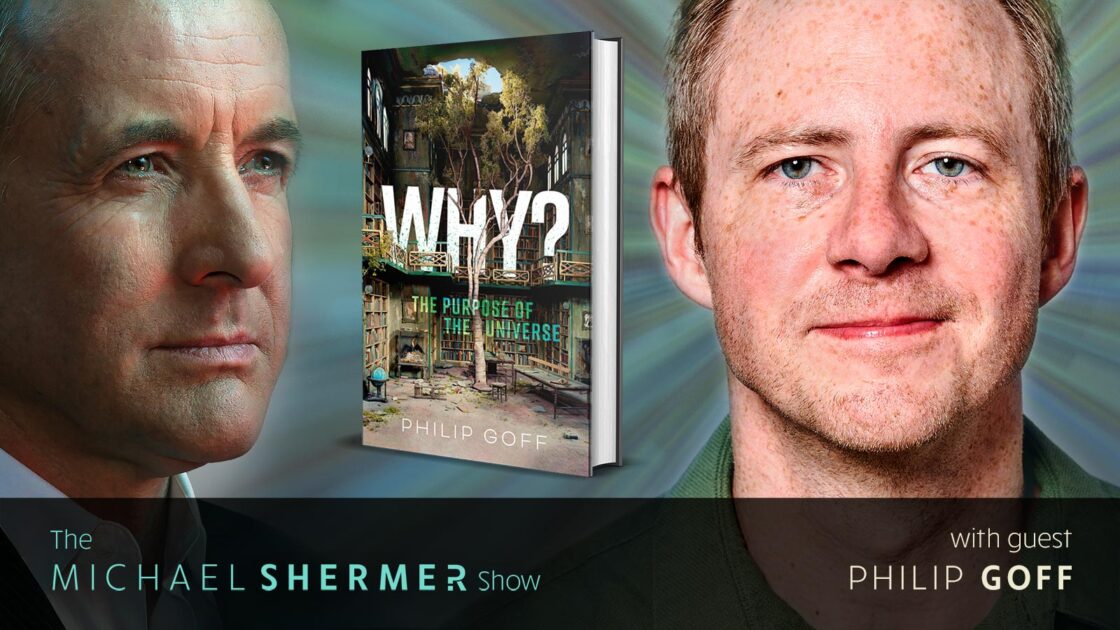
Shermer and Goff discuss: • living in a computer simulation • the universe itself as a conscious mind • cosmic purpose • fine-tuning • free will • consciousness (the ground of all being?) • morality and the Is-Ought Fallacy • What is my purpose in life? • religious vs. secular answers to the purpose question • awe and how to be spiritual but not religious.
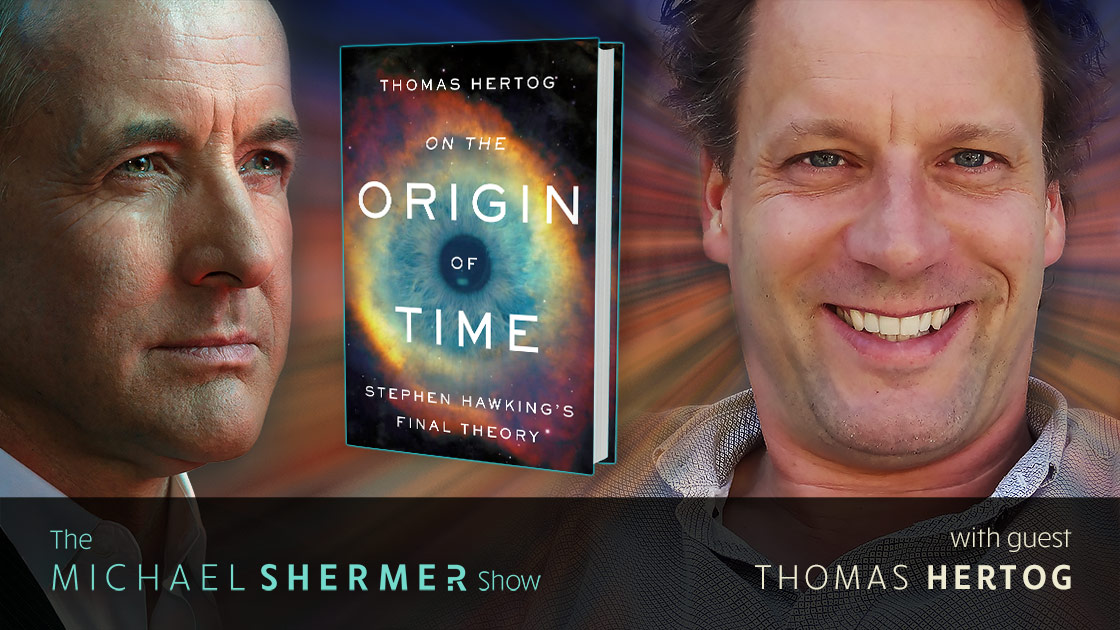
Shermer and Hertog discuss: what it was like working with Stephen Hawking • Darwinian model of cosmology • time • What banged the Big Bang? • cosmic inflation and multiple universes • how to reconcile Einstein’s relativity theory of gravity and quantum theory • Hawking’s no-boundary theory • why the universe appears designed • Feynman’s sum over histories approach to quantum physics • Is there purpose in the cosmos? • Why is there something rather than nothing?

Shermer and Hecht discuss: awe and wonder • science and religion • the new atheists • humanism and atheism • secular Judaism • replacing religion, with what? • the original meaning of liturgy and why it’s still important • rituals for atheists • how to cope with loss, death, and grief • what to say at weddings and funerals • Alvy’s Error (the universe is expanding but Brooklyn is not) • what we do in the hear-and-now matters, whether or…
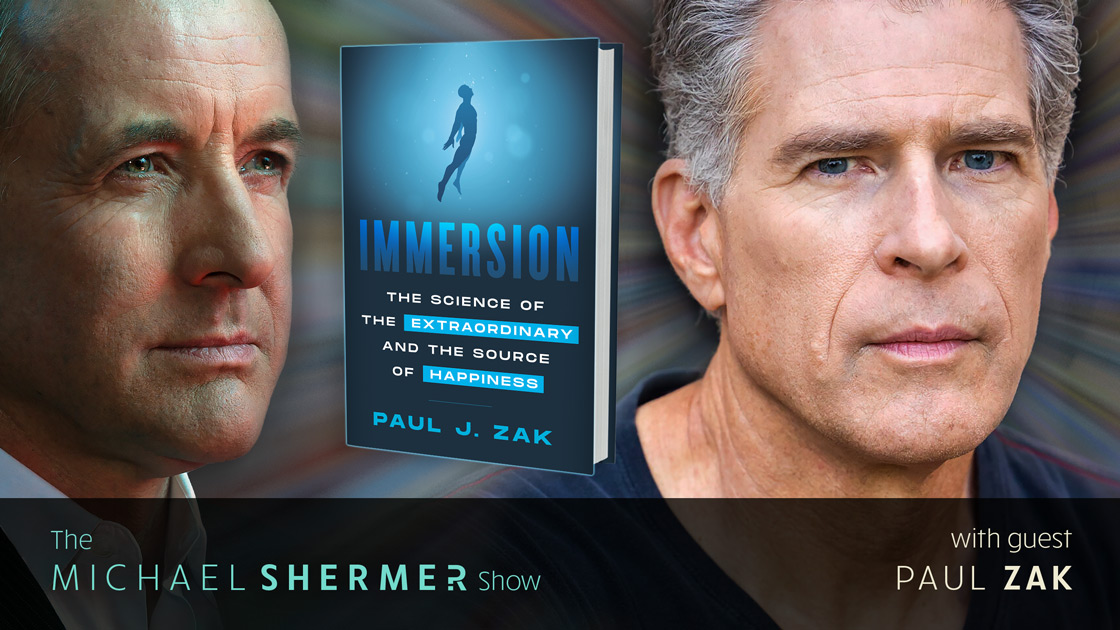
Shermer and Zak discuss: neuroeconomics, neuromanagement, and neuromarketing • Zak’s work with the CIA and DARPA • immersion and how is it quantified (with a formula) • monotony of the mundane • the ordinary and extraordinary • peak-end storytelling • immersion in advertising, entertainment, education, attractions, marriage, and retail • what makes a great movie or successful unscripted TV show • novelty • sensitivity training programs • how to give a TED talk • immersion and political candidates • The…
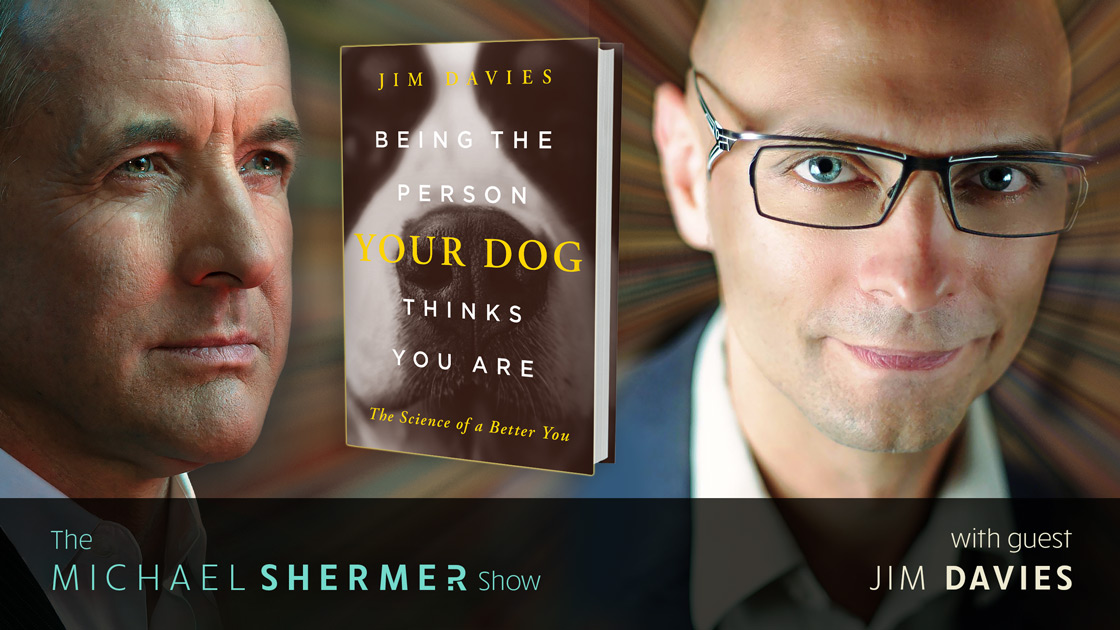
Shermer and Davies discuss: • an operational definition of the “good life” or “happiness” or “well being” • utilitarianism vs. deontology vs. virtue ethics • effective altruism • marriage and children • objective moral values • Do we have a moral obligation to help those who cannot help themselves? • Does America have a moral obligation to help oppressed peoples in dictatorships? • immigration • abortion • the welfare state • prostitution • reparations.
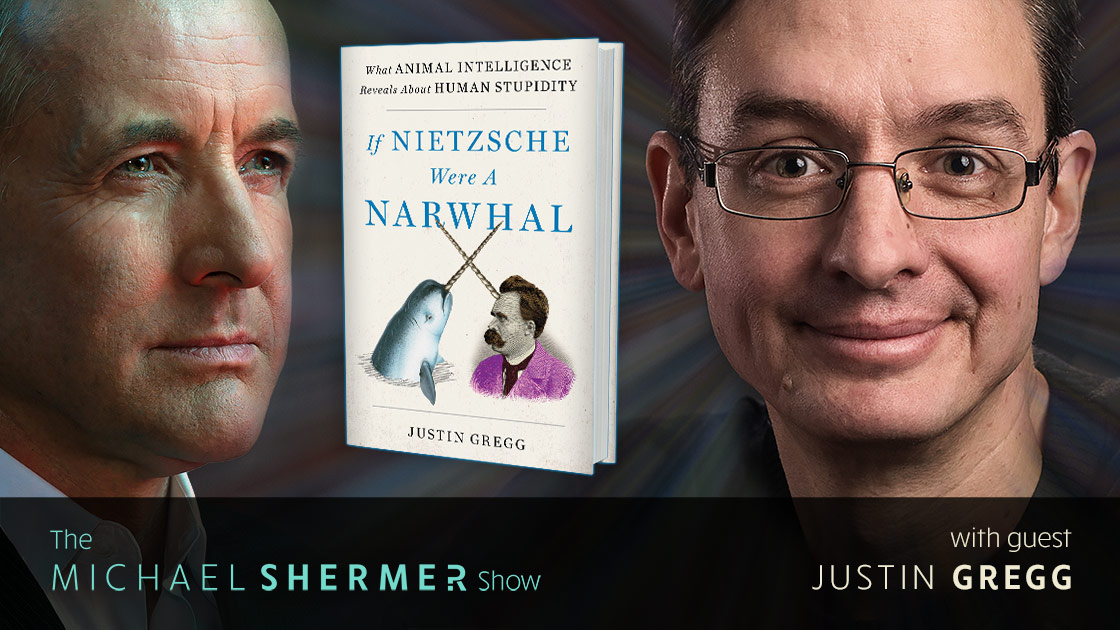
Shermer and Gregg discuss: • intelligence • stupidity • dolphins • artificial intelligence • language • rationality • moral systems • comparative thanatology • “causal inference” vs. “learned associations” • humans as “why specialists” • death awareness • why narwhals do not commit genocide • “prognostic myopia” • our “shortsighted farsightedness” as “an extinction-level threat to humanity” • consciousness and sophisticated consciousness: animals and humans • free will • determinism • pleasure vs. happiness vs. purposefulness.
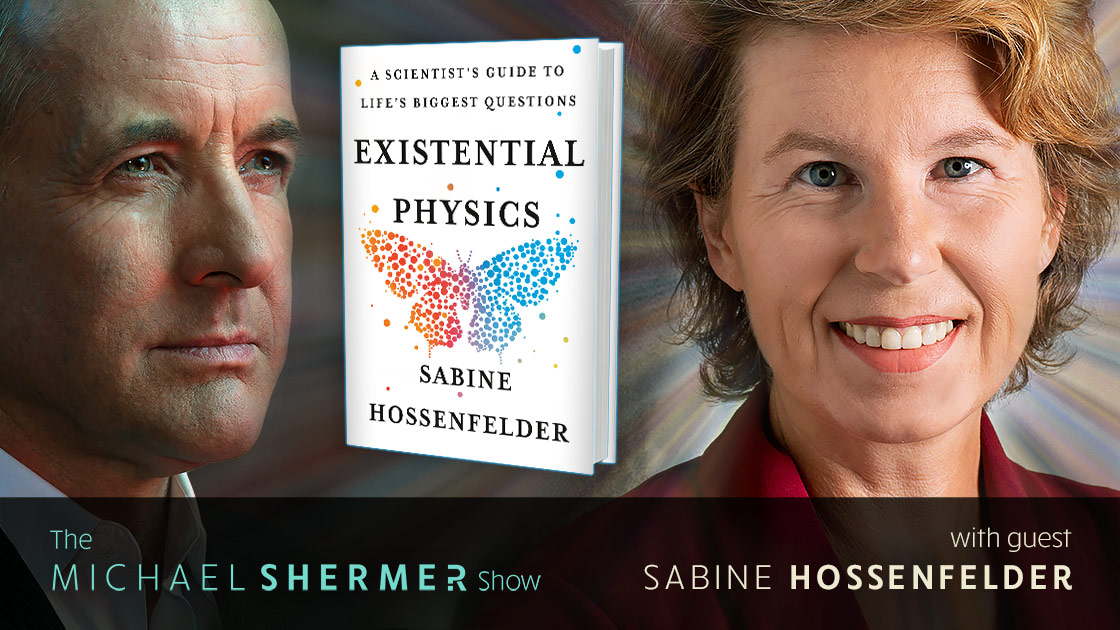
What is time? Does the past still exist? How did the universe begin and how will it end? Do particles think? Was the universe made for us? Why doesn’t anyone ever get younger? Has physics ruled out free will? Will we ever have a theory of everything? To examine these ideas, Shermer speaks with Sabine Hossenfelder, a research fellow at the Frankfurt Institute for Advanced Studies, Germany. She has published more than eighty research articles about the foundations of physics,…
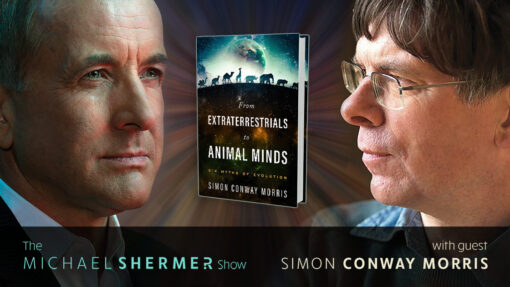
Michael Shermer speaks with Simon Conway Morris, Emeritus Professor of Evolutionary Palaeobiology at the University of Cambridge. In his latest book Morris challenges six assumptions — what he calls “myths” — that too often pass as unquestioned truths amongst the evolutionary orthodox. These include the idea that evolution is boundless in the kinds of biological systems it can produce. Not true, he says.
Michael Shermer speaks with Simon Conway Morris about chance, direction, and design in evolution, the possibility of purpose in the cosmos, and the existence (or not) of god. Plus, the Skeptic Research Center asks “Who Endorses Conspiracy Theories about Government Elites?”
Why do we so often seek out physical pain and emotional turmoil? In episode 223, Michael Shermer speaks with professor of psychology Paul Bloom about the pleasures of suffering and the meaning of life, based on his book The Sweet Spot: The Pleasures of Suffering and the Search for Meaning.
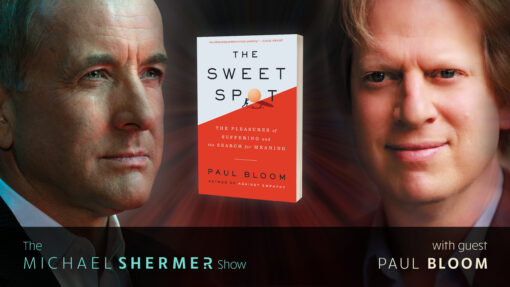
Why do we so often seek out physical pain and emotional turmoil? In episode 223, Michael Shermer speaks with professor of psychology Paul Bloom about the pleasures of suffering and the meaning of life, based on his book The Sweet Spot: The Pleasures of Suffering and the Search for Meaning.

What is it about the human mind that so effortlessly translates natural events into messages from another realm — even despite our best attempts to deny that there’s any message in them at all?
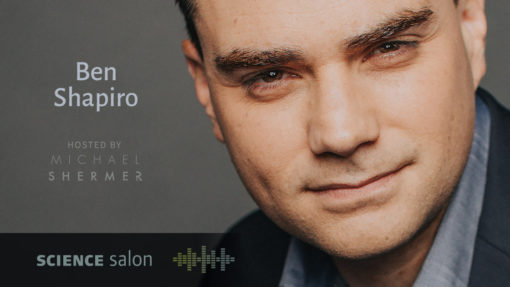
In Science Salon # 58, Michael Shermer and noted conservative political commentator and public intellectual Ben Shapiro discuss and debate “what made the West great” in this wide ranging conversation.
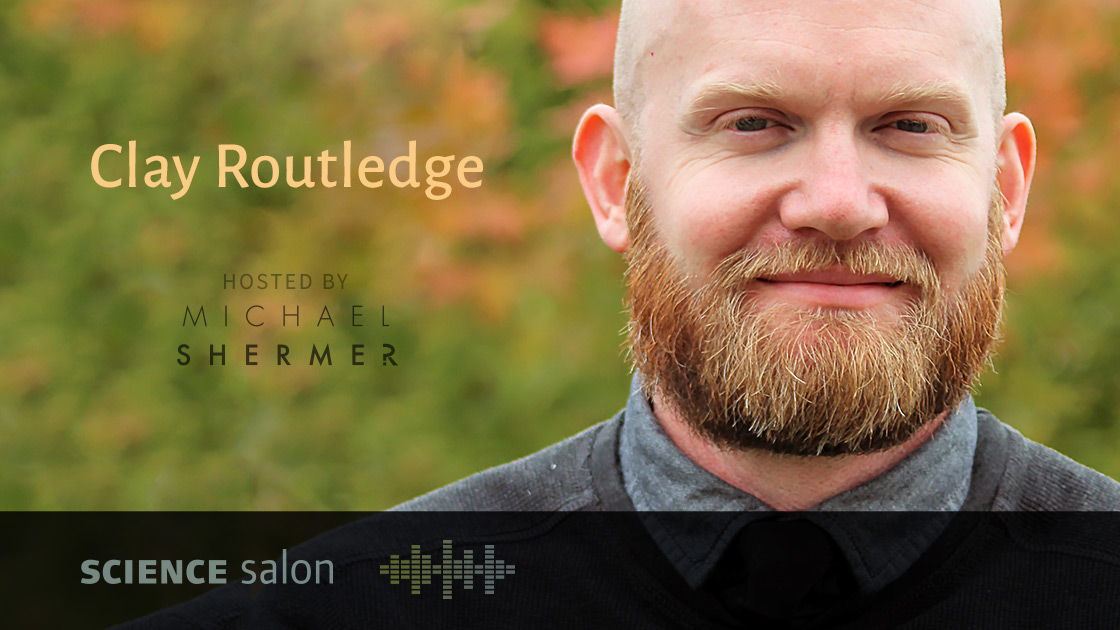
Shermer speaks with psychologist Clay Routledge about: the evolution of motivation and goals in animals and humans • what a “purpose driven life” really means • how atheists and nonbelievers can create meaningful and purposeful lives • the self, personal identity, and existential psychology • why people believe in God and fear death • why religious people live longer and healthier lives • why one-third of atheists believe in some type of life after death • free will as a…
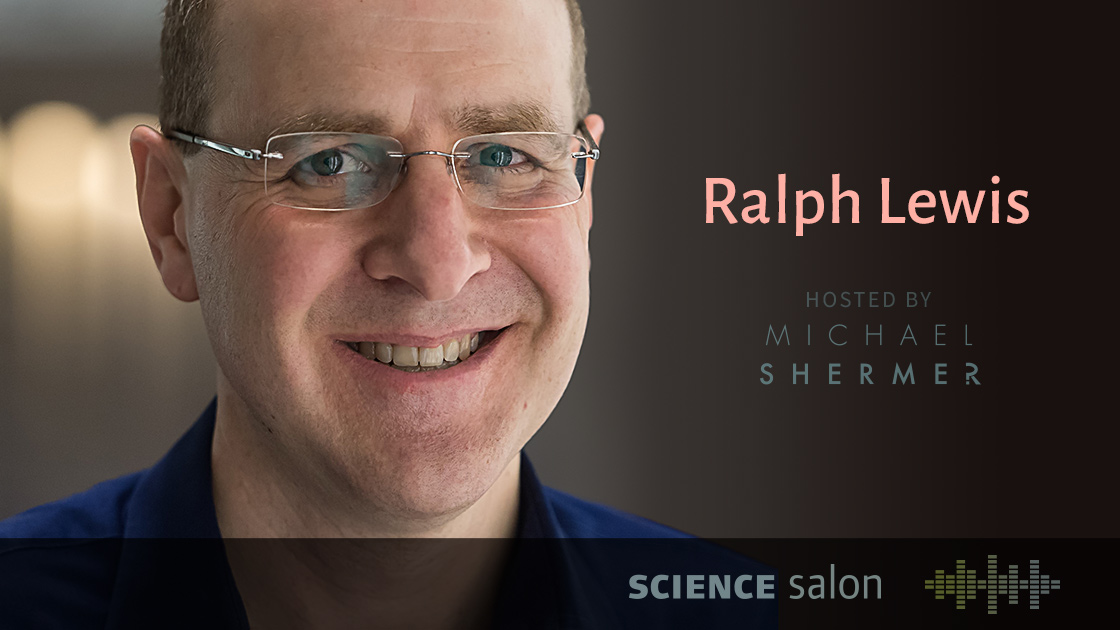
In Science Salon # 30, Michael Shermer talks with University of Toronto psychiatrist Dr. Ralph Lewis, the author of the new book Finding Purpose in a Godless World: Why We Care Even if the Universe Doesn’t about helping cancer patients (and others facing death) to cope without depending on religion.
In this week’s eSkeptic: Available Now: Skeptic Magazine 23.1: Evil, Theism, Atheism Scientific American: Factiness: Are we living in a post-truth world? SKEPTIC MAGAZINE 23.1 Evil, Theism, Atheism—meaning & morality in a life without god Order a print subscriptionOrder a digital subscriptionBuy the print back issueBuy the digital back issue Here’s what’s in the latest […]
IN THIS REVEALING TALK based on her compelling new novel, the award-winning writer and MacArthur “Genius” Fellow Rebecca Goldstein (Ph.D. in philosophy from Princeton and author of The Mind-Body Problem, Properties of Light, and studies of Kurt Gödel and Baruch Spinoza), reads from her new novel and speaks about how she uses her characters to explore the tension between belief and skepticism.
In this week’s eSkeptic, Charles G. Lambdin reviews the film “The Privileged Planet: The Search for Purpose in the Universe.”





















